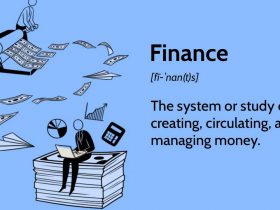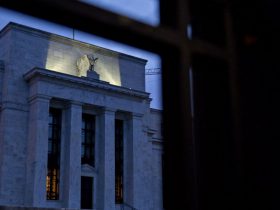Mortgage rates declined for the first time in eight weeks, even as the Federal Open Market Committee raised the possibility of a hike in its final meeting this year.
In the short term, the FOMC decision this week to leave short-term rates where they are helped to drive the 10-year Treasury yield back down from the 5% cliff. That in turn should contribute to lower rates on the 30-year mortgage.
But Sam Khater, Freddie Mac’s chief economist, thinks the Fed’s posture is not helping the market.
“The Federal Reserve again decided not to raise interest rates but have not ruled out a hike before year-end,” Khater said in a press release. “Coupled with geopolitical uncertainty, this ambiguity around monetary policy will likely have an impact on the overall economic landscape and may continue to stall improvements in the housing market.”
Freddie Mac’s Primary Mortgage Market Survey for Nov. 2 found the 30-year fixed rate mortgage at an average of 7.76%, down three basis points from 7.79% last week but up from 6.95% one year ago.
The 15-year FRM was unchanged week-to-week at 7.03%. For the same week in 2022, it was at 6.29%.
On Nov. 1, the last day of the FOMC meeting, the 10-year Treasury hit an intraday high of 4.9%. Since the Fed’s announcement, it has plummeted, reaching 4.67% as of 11:30 the next morning.
“The slowdown in economic activity in the rest of the world and conflict abroad have made U.S. Treasurys more attractive, helping to exert some downward pressure on Treasury yields ¡ª and the mortgage rates that tend to follow them ¡ª in recent days,” said Orphe Divounguy, Zillow Home Loans senior macroeconomist, in a Wednesday evening statement.?
“Despite striking a dovish tone, which sent longer-term yields even lower, Chair [Jerome] Powell’s comments indicated that supply side constraints could hinder a full rebalancing of the labor market, causing downward wage and price adjustments to slow and dragging out the process of returning to the Fed’s inflation target,” Divounguy added.?
As of late morning on Thursday, Zillow’s rate tracker put the 30-year FRM at 7.39%, down 10 basis points from Wednesday’s 7.49% and 30 basis points from last week’s average of 7.69%.
The Fed is likely to pause short-term rates at the current level, with its next move to be a cut in the second quarter of 2024, Mike Fratantoni, the Mortgage Bankers Association’s chief economist, said in a statement.
“If the Fed does indeed move to cut rates next year and signals its intent to do so, mortgage rates should trend downward,” Fratantoni said. “Our forecast calls for this to happen, which would support a somewhat stronger spring housing market.”
In a separate statement, Bob Broeksmit, MBA president and CEO, reiterated the group’s call for the Fed to act as a calming influence on the market.
“We were pleased to see that the Fed held short-term rates steady yesterday and continue to believe that it should not hike again and not sell its holdings of mortgage-backed securities until and unless the housing finance market has stabilized,” Broeksmit said. “These actions would help to lower mortgage rates and improve homebuyer affordability heading into 2024.”
Keefe, Bruyette & Woods also believes the Fed is at the end of its tightening cycle. Going forward, it is bearish on those companies depending on originations but bullish on servicers.
“The current interest rate environment remains challenging for mortgage volumes, which is negative for mortgage originators and title insurers,” wrote Bose George, in a report. “Conversely, it should be beneficial for mortgage servicing-heavy names,” specifically mentioning Mr. Cooper, Rithm and Pennymac.
“Despite the headwinds surrounding mortgage volumes, stable home price appreciation should remain a positive for mortgage credit,” George added.
Jeremy Sicklick, CEO of real estate brokerage HouseCanary, declared “with inflation rates still sitting above the Federal Reserve’s stated target of 2%, there is a possibility of rates reaching 8% or more, putting would-be buyers under further pressure.”
The jobs market will be the biggest short-term influence on mortgage rates, Divounguy noted.
“This week’s employment and wage growth data release will likely prompt investors to recalculate their inflation forecasts, causing large swings in mortgage rates,” he said.
The Bureau of Labor Statistics data will be announced on Friday.













Leave a Reply